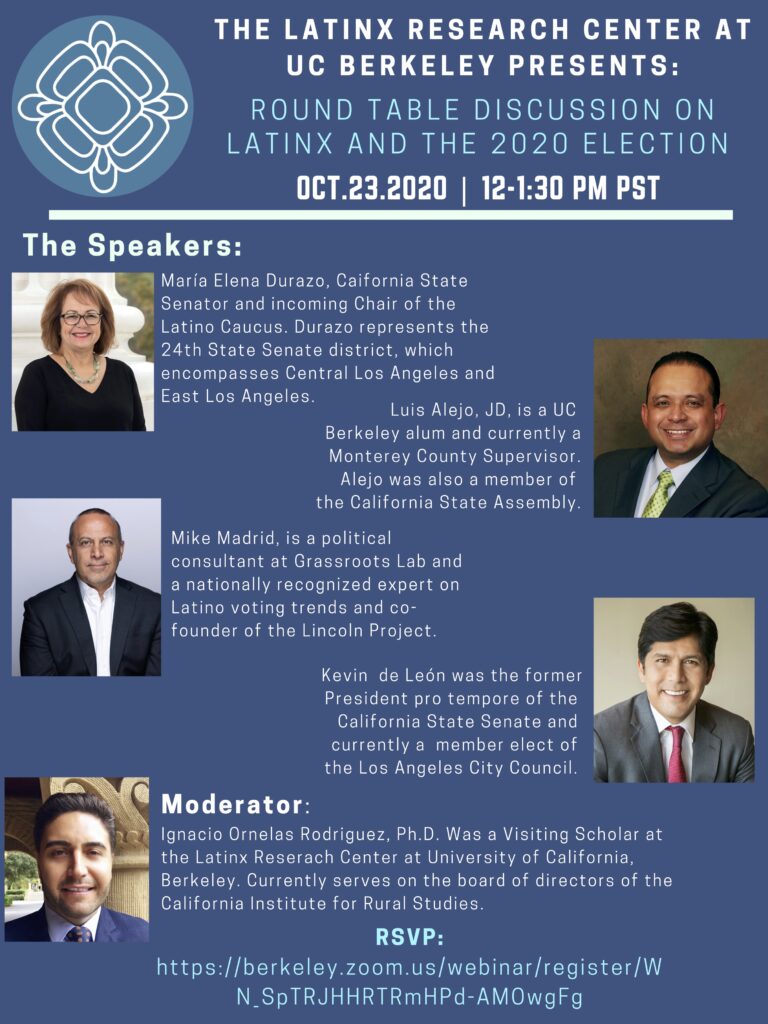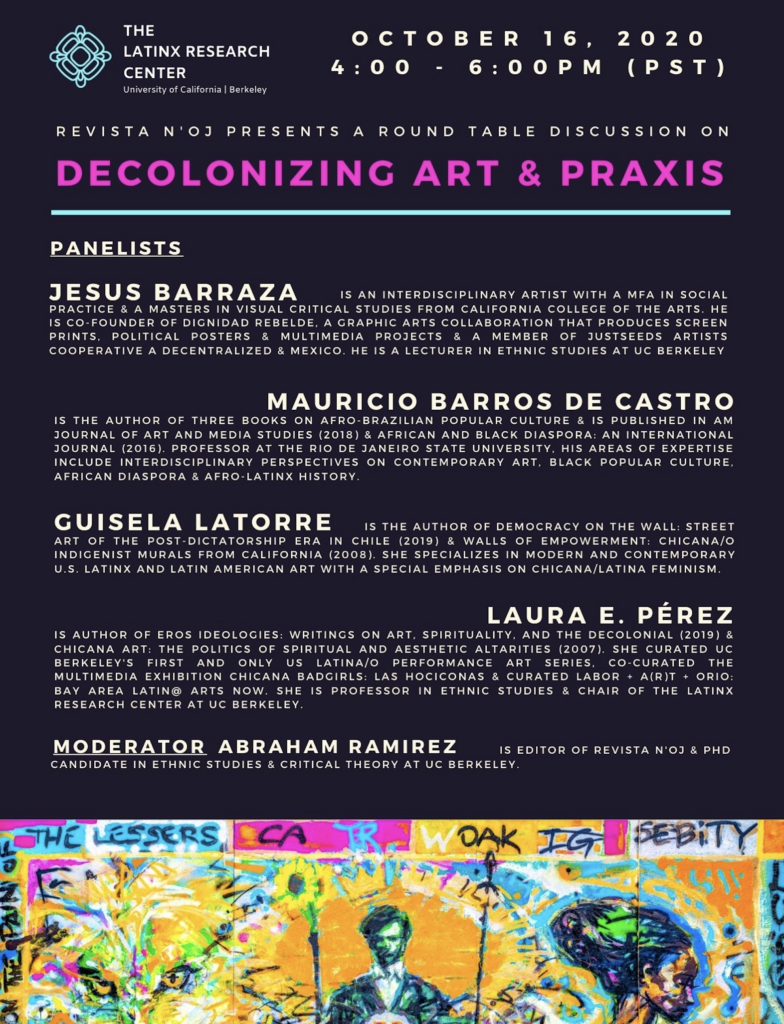Past Events
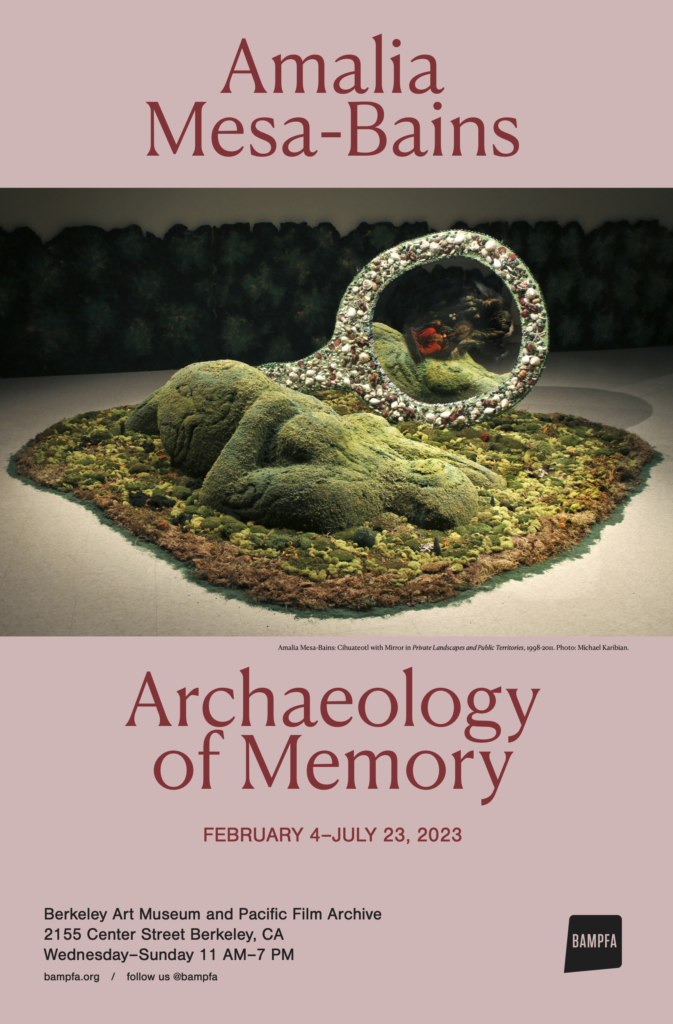
Amalia Mesa-Bains: Archaeology of Memory is the first retrospective exhibition of the work of longtime Bay Area artist Mesa-Bains. Presenting work from the entirety of her career for the first time, this exhibition, which features nearly 60 works in a range of media, including fourteen major installations, celebrates Mesa-Bains’s important contributions to the field of contemporary art locally and globally.
For over forty-five years, Mesa-Bains has worked to bring Chicana art into the broader American field of contemporary art through innovations of sacred forms such as altares (home altars), ofrendas (offerings to the dead), descansos (roadside resting places), and capillas (home yard shrines). She expanded her installations from domestic spaces to include laboratories, library forms, gardens, and landscapes, focusing attention on the politics of space to highlight colonial erasure of the preexisting and still-surviving cultural differences in colonized Indigenous and Mexican American communities. Many of these works offer a feminist perspective on the domestic life of immigrant and Mexican American women across different historical periods—most notably the four-part installation series Venus Envy, which was created over multiple decades and will be displayed in its entirety for the first time at BAMPFA.
Standing at the juncture of cultural diversity, environmentally centered spirituality culled from ancestral non-Western worldviews, and intersectional feminism, Mesa-Bains has been heralded as one of the most prominent voices in feminist Chicanx art of her generation.
Amalia Mesa-Bains: Archaeology of Memory is organized by the Berkeley Art Museum and Pacific Film Archive in collaboration with the Latinx Research Center (LRC) at UC Berkeley. The exhibition is guest curated by María Esther Fernández, artistic director of The Cheech Marin Center for Chicano Art & Culture of the Riverside Art Museum, and Dr. Laura E. Pérez, professor and chair of the LRC.
The exhibition is made possible by generous lead support from the Henry Luce Foundation and The Andy Warhol Foundation for the Visual Arts. Major funding is provided by Margarita Gandia and Diana Campoamor, Marta Thoma Hall, Pamela and David Hornik, and the UC Berkeley Latinx Research Center. Additional support was provided by a College of Letters and Sciences Dean’s Faculty Excellence Program project grant, funded by the Andrew W. Mellon Foundation.
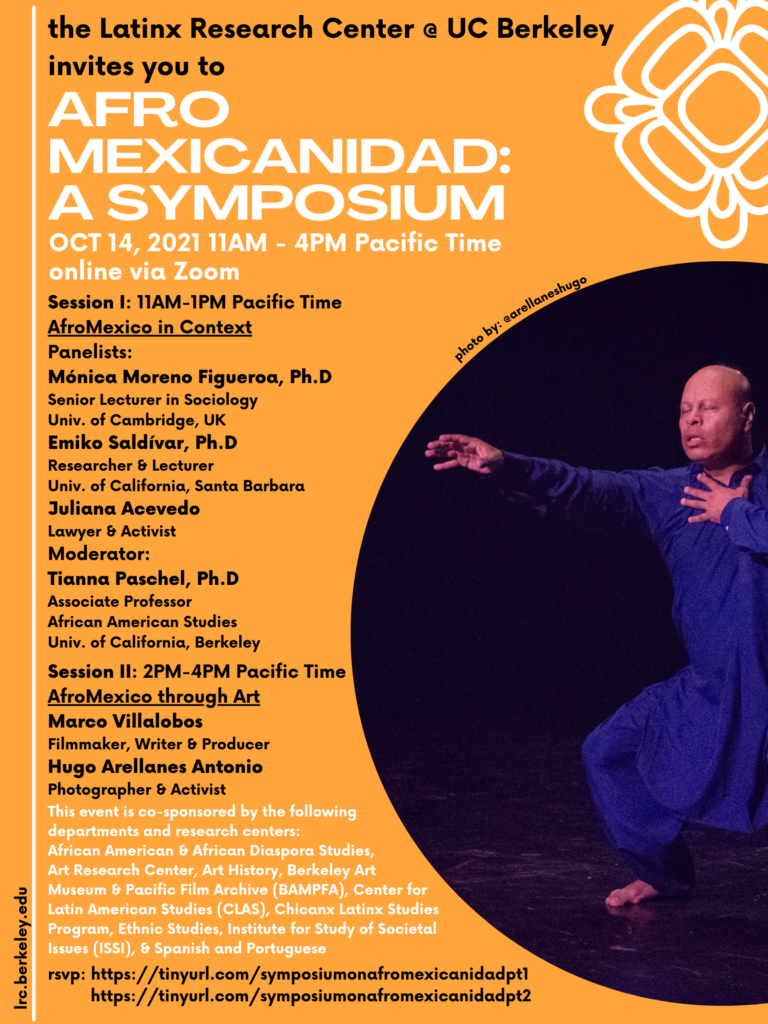
We invite you to join a virtual Symposium on Afro Mexicanidad hosted by the Latinx Research Center (LRC) in partnership with numerous departments and other units across campus on October 14th. The morning session (11am – 1pm) will provide a critical overview of race relations in México; the 2020 Mexican census which took Afro Mexicanos into account for the first time in history; and the social movements that made this unprecedented event possible. The symposium will be moderated by Prof. Tianna Paschel (UC Berkeley African African Studies and Sociology), and feature panelists Prof. Mónica Moreno Figueroa (Sr. Lecturer, Cambridge University), Prof. Emiko Saldívar Tanaka (UCSB, Sociology), and Juliana Acevedo (attorney and activist). The afternoon session (2pm – 4pm) will feature a talk and documentary screening of Beyond La Bamba by Marco Villalobos, as well as a talk by photographer Hugo Arellanes Antonio who will inaugurate three photo exhibitions that depict the lives and culture of Afro Mexicanos in Oaxaca’s Costa Chica and Ciudad de México. Please see the attached poster for more information and registration links. Translation will be provided. We hope to see you there and appreciate your circulating the Spanish and English language flyers broadly.
Time
- Morning Session: 11am – 1pm pacific time
- Afternoon: 2pm – 4pm pacific time
Registration Links:
- Morning Session: https://tinyurl.com/symposiumonafromexicanidadpt1
- Afternoon Session: https://tinyurl.com/symposiumonafromexicanidadpt2
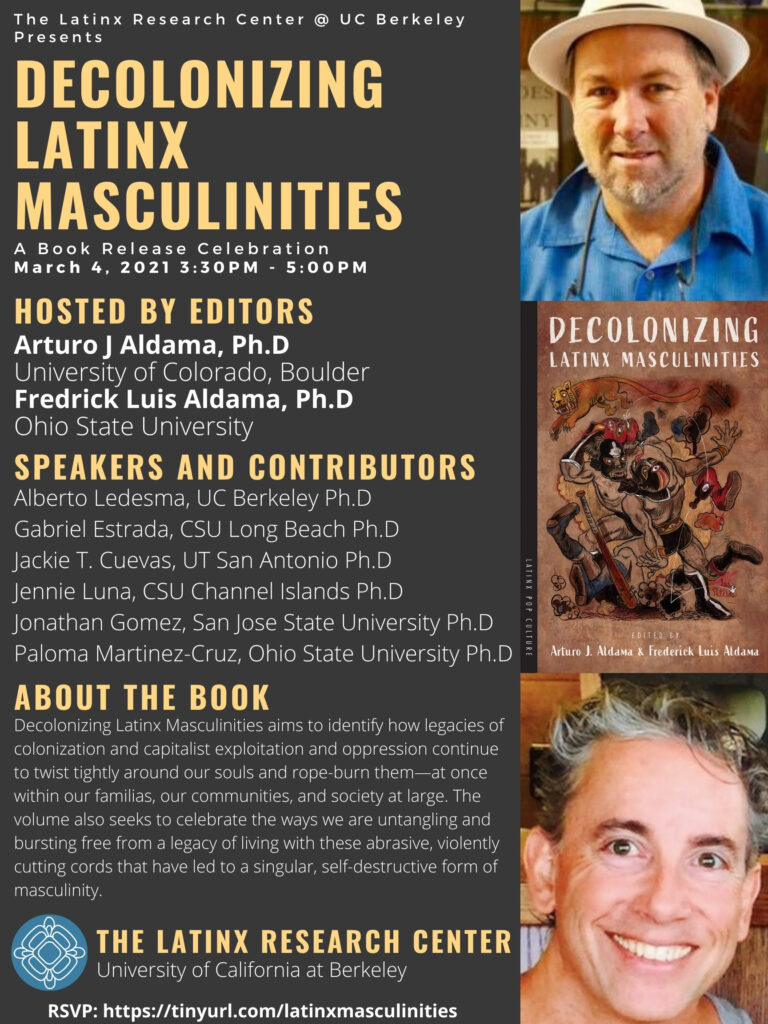
The Latinx Research Center is proud to present our next event Decolonizing Latinx Masculinities Book Talk & Celebration hosted by:
Arturo J Aldama, Ph.D
University of Colorado, Boulder
Fredrick Luis Aldama, Ph.D
Ohio State University
Decolonizing Latinx Masculinities aims to identify how legacies of colonization and capitalist exploitation and oppression continue to twist tightly around our souls and rope-burn them—at once within our familias, our communities, and society at large. The volume also seeks to celebrate the ways we are untangling and bursting free from a legacy of living with these abrasive, violently cutting cords that have led to a singular, self-destructive form of masculinity.
Speakers include:
Alberto Ledesma, UC Berkeley Ph.D
Gabriel Estrada, CSU Long Beach Ph.D
Jackie T. Cuevas, UT San Antonio Ph.D
Jennie Luna, CSU Channel Islands Ph.D
Jonathan Gomez, San Jose State University Ph.D
Paloma Martinez-Cruz, Ohio State University Ph.D
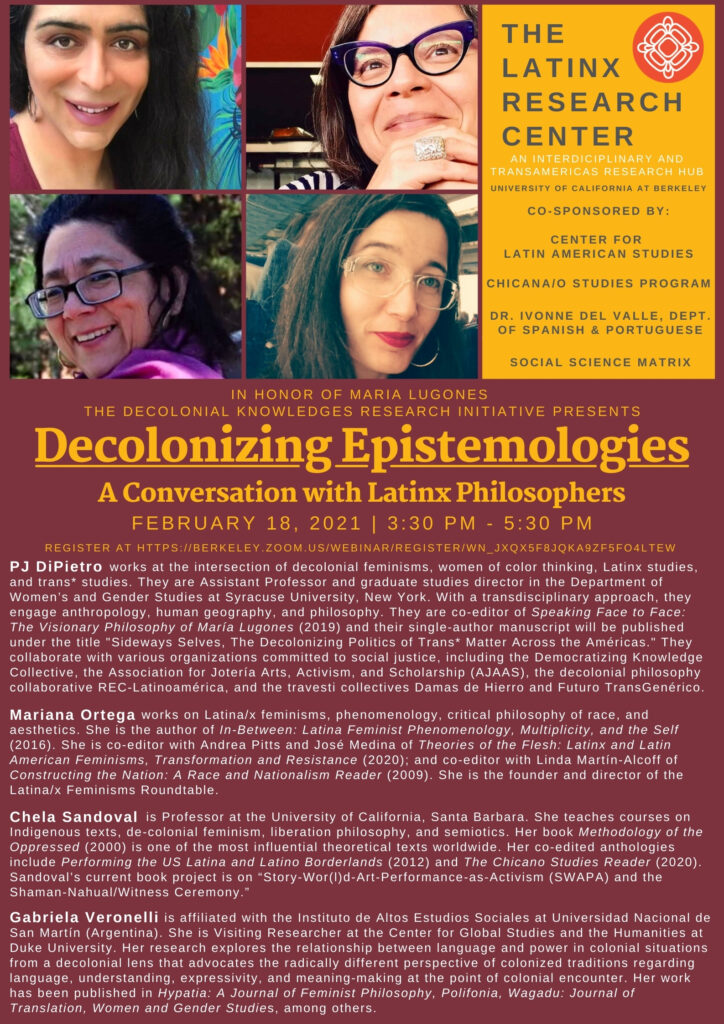
In Honor of Maria Lugones The Decolonial Knowledges Research Initiative Presents Decolonizing Epistemologies A Conversation with Latinx Philosophers.
Speaking at this event are PJ DiPietro, Mariana Ortega, Chela Sandoval, and Gabriela Veronelli.
The round table “Decolonizing Epistemologies: A Conversation with Latinx Philosophers” will discuss the politics of epistemological decolonization, particularly with respect to philosophical and/or spiritual thought. The dialogue will engage a deeper understanding of how the project of multiple/plural philosophies/worldviews/ways of knowing directly contribute to a campus and classroom (and more broadly, social/national) climate of knowledge and respect for POC cultures/being. The Decolonial Knowledges Working Group will be reading the work of all four philosophers as well as the work of María Lugones. After a Q&A session with the DK group and the panelists, the dialogue will be opened to the public. This panel is dedicated in honor of María Lugones.

The Latinx Research Center will host a round table discussion on CA Latinx & Covid-19, featuring Alein Haro, Hector Rodriguez and Kurt Organista.
California Latinx, Covid-19, & Pandemics panel will be Moderated by Dr. Clara Mantini-Briggs, a Venezuelan public health physician was the National Coordinator of the Dengue Fever Program in Venezuela’s Ministry of Health and is a Lecturer in the Department of Anthropology at the University of California, Berkeley.
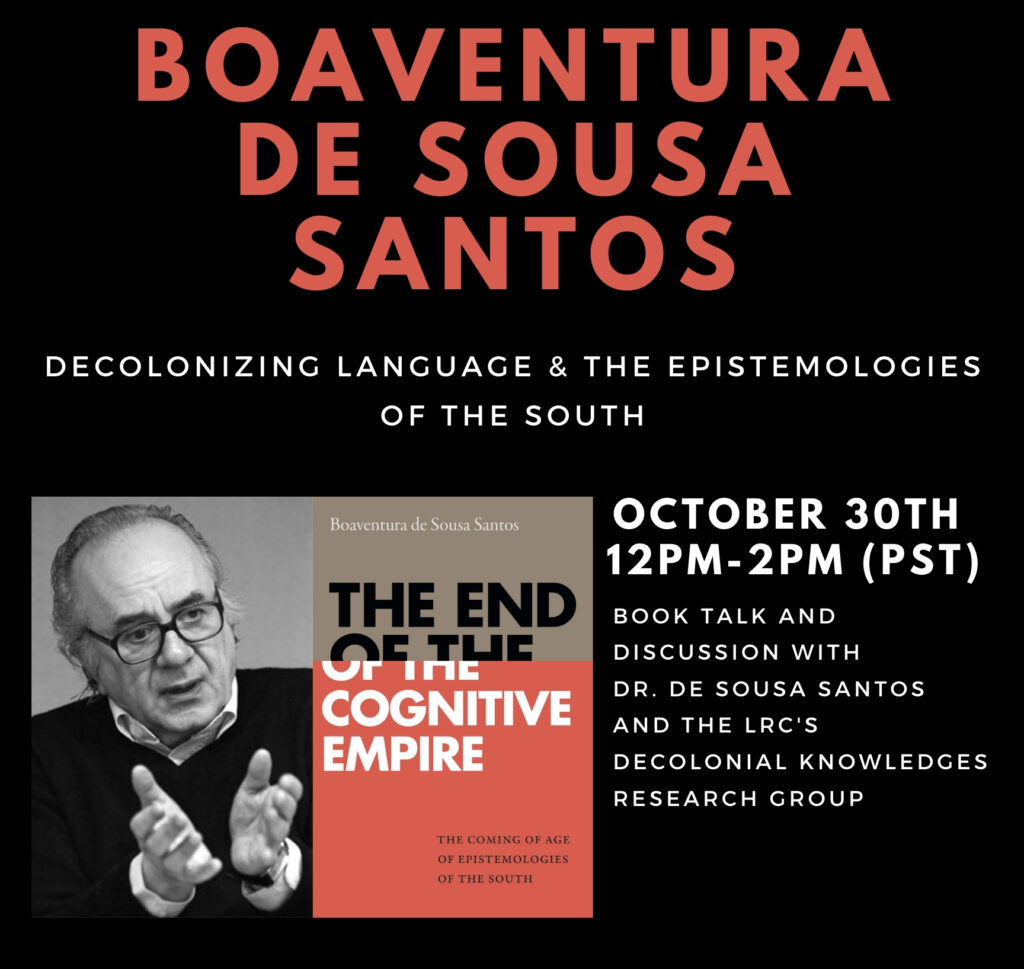
In The End of the Cognitive Empire Boaventura de Sousa Santos further develops his concept of the “epistemologies of the South,” in which he outlines a theoretical, methodological, and pedagogical framework for challenging the dominance of Eurocentric thought. As a collection of knowledges born of and anchored in the experiences of marginalized peoples who actively resist capitalism, colonialism, and patriarchy, epistemologies of the South represent those forms of knowledge that are generally discredited, erased, and ignored by dominant cultures of the global North. Noting the declining efficacy of established social and political solutions to combat inequality and discrimination, Santos suggests that global justice can only come about through an epistemological shift that guarantees cognitive justice. Such a shift would create new, alternative strategies for political mobilization and activism and give oppressed social groups the means through which to represent the world as their own and in their own terms.
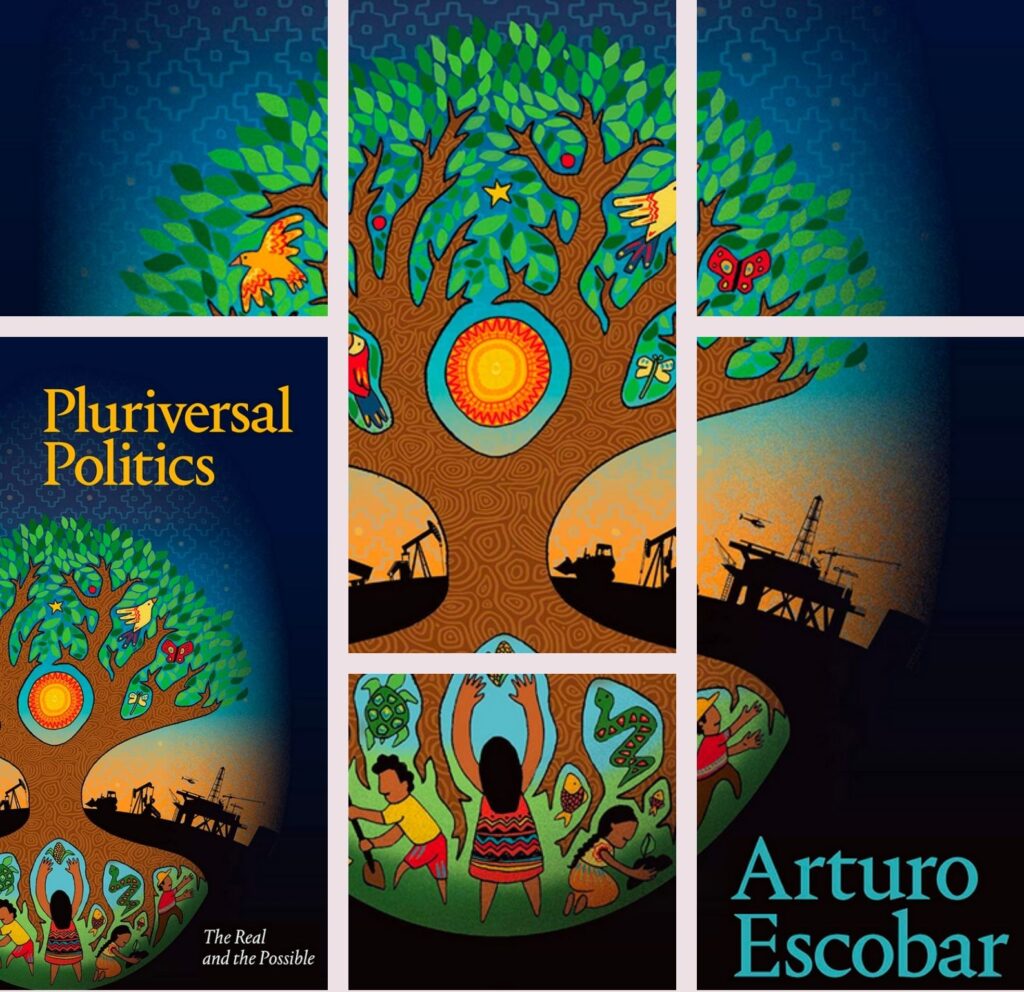
In Pluriversal Politics (2020) Arturo Escobar engages with the politics of the possible and how established notions of what is real and attainable preclude the emergence of radically alternative visions of the future. Reflecting on the experience, philosophy, and practice of indigenous and Afro-descendant activist-intellectuals and on current Latin American theoretical-political debates, Escobar chronicles the social movements mobilizing to defend their territories from large-scale extractive operations in the region. He shows how these movements engage in an ontological politics aimed at bringing about the pluriverse—a world consisting of many worlds, each with its own ontological and epistemic grounding. Such a politics, Escobar contends, is key to crafting myriad world-making stories telling of different possible futures that could bring about the profound social transformations that are needed to address planetary crises. Both a call to action and a theoretical provocation, Pluriversal Politics finds Escobar at his critically incisive best.
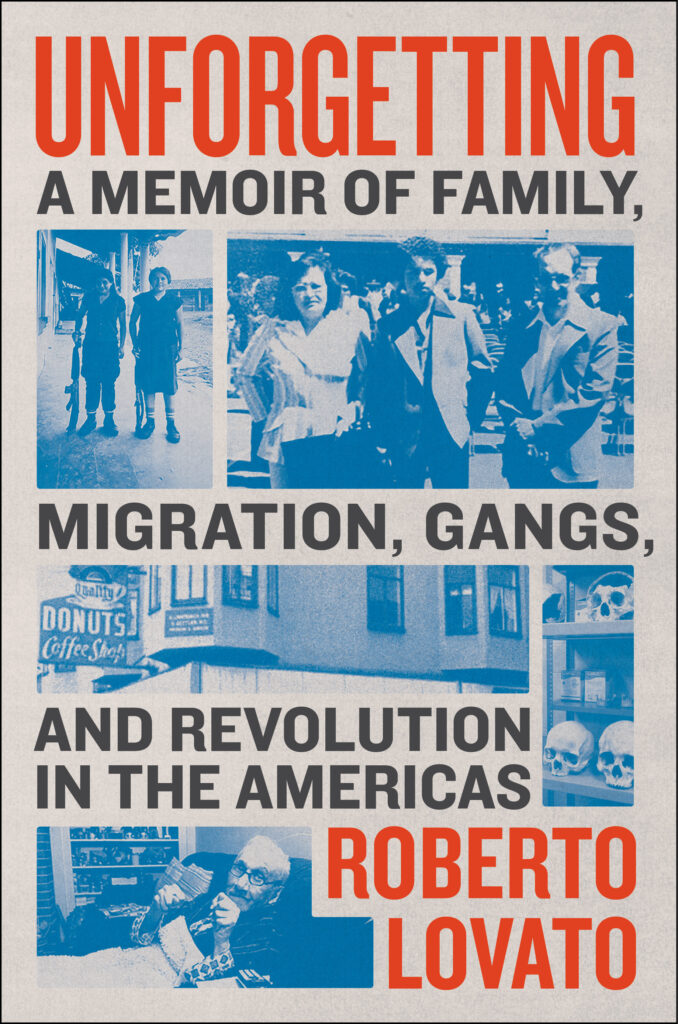
Roberto Lovato presents his new book on revolution and intergenerational trauma with a grounded perspective on the politics of war and migration in Central America and the United States.
“In this stunning tale of love and horror, the journalist Roberto Lovato recounts how his own family history, from the indentured Salvadoran countryside to the burning streets of Los Angeles, has been shaped by resistance to yanqui violence.”— Mike Davis, author of City of Quartz and Set the Night on Fire: L.A. in the Sixties
“With the artistry of a poet and the intensity of a revolutionary, Lovato untangles the tightly knit skein of love and terror that connects El Salvador and the United States. This book is an eye-opener into a world Anglo-Americans have been taught is enemy territory.”— Barbara Ehrenreich

